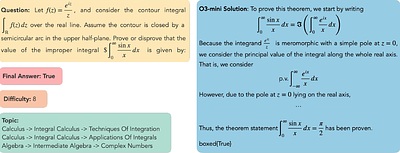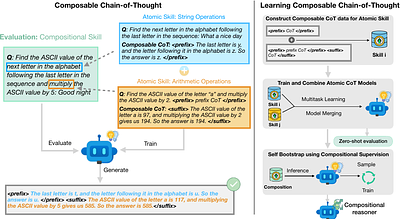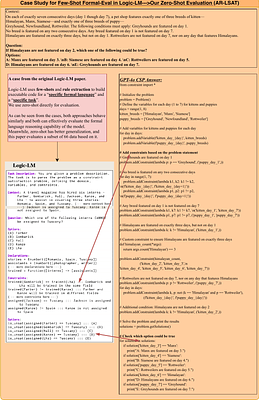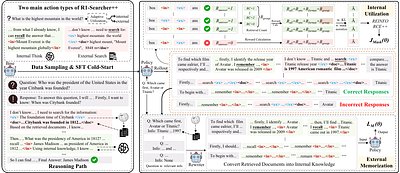By: Ali Behrouz, Zeman Li, Praneeth Kacham, Majid Daliri, Yuan Deng, Peilin Zhong, Meisam Razaviyayn, Vahab Mirrokni
By: Zexi Liu, Jingyi Chai, Xinyu Zhu, Shuo Tang, Rui Ye, Bo Zhang, Lei Bai, Siheng Chen
By: Luke McDermott, Robert W. Heath Jr., Rahul Parhi
By: Ziyin Zhang, Jiahao Xu, Zhiwei He, Tian Liang, Qiuzhi Liu, Yansi Li, Linfeng Song, Zhengwen Liang, Zhuosheng Zhang, Rui Wang, Zhaopeng Tu, Haitao Mi, Dong Yu
By: Fangcong Yin, Zeyu Leo Liu, Liu Leqi, Xi Ye, Greg Durrett
By: Alkis Koudounas, Moreno La Quatra, Eliana Pastor, Sabato Marco Siniscalchi, Elena Baralis
By: Yongan Yu, Mengqian Wu, Yiran Lin, Nikki G. Lobczowski
By: Jin Jiang, Jianing Wang, Yuchen Yan, Yang Liu, Jianhua Zhu, Mengdi Zhang, Xunliang Cai, Liangcai Gao
By: Rui Ye, Keduan Huang, Qimin Wu, Yuzhu Cai, Tian Jin, Xianghe Pang, Xiangrui Liu, Jiaqi Su, Chen Qian, Bohan Tang, Kaiqu Liang, Jiaao Chen, Yue Hu, Zhenfei Yin, Rongye Shi, Bo An, Yang Gao, Wenjun Wu, Lei Bai, Siheng Chen
R1-Searcher++: Incentivizing the Dynamic Knowledge Acquisition of LLMs via Reinforcement Learning
By: Huatong Song, Jinhao Jiang, Wenqing Tian, Zhipeng Chen, Yuhuan Wu, Jiahao Zhao, Yingqian Min, Wayne Xin Zhao, Lei Fang, Ji-Rong Wen









